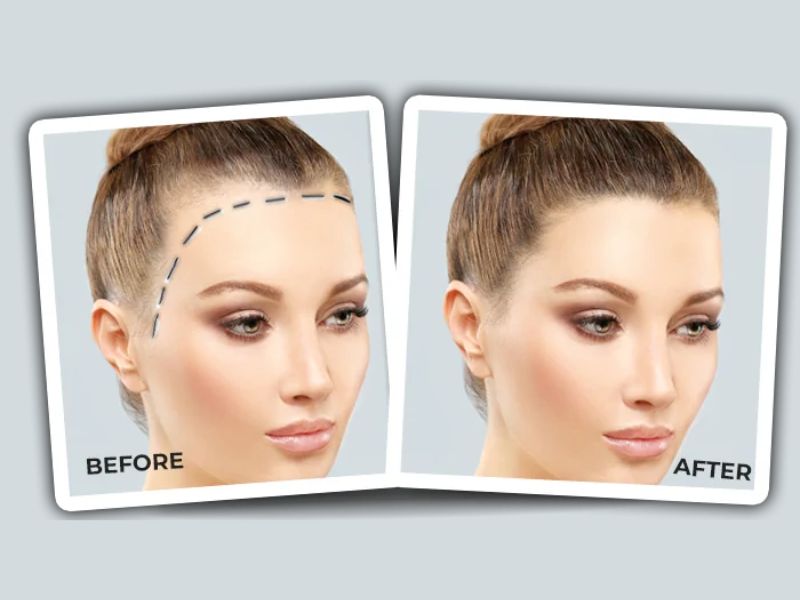Hair Restoration for Women
Hair: More than just strands on the head, it is a symbol of identity, confidence, and beauty for many women. Yet, countless women secretly grapple with the emotional impact of hair loss. Although often associated with men, female hair loss is common. Fortunately, advances in medical science, natural remedies, and cosmetic solutions have provided paths to effective hair restoration for women.

This article will delve into the causes of hair loss in women, discuss available hair restoration treatments, and provide practical guidance to assist women in reclaiming their hair—and their self-assurance.
Understanding Hair Loss in Women
Hair loss in women can manifest in many ways: thinning on the crown, widening parts, or excessive shedding. According to the American Academy of Dermatology, over 30 million women in the U.S. alone experience noticeable hair loss.
Typical Causes of Hair Loss in Women:
Hormonal Imbalance: Hormones significantly impact hair health. Pregnancy, childbirth, menopause, and thyroid issues can trigger sudden or gradual hair loss.
Genetics: Female Pattern Hair Loss (FPHL), also known as androgenetic alopecia, is an inherited condition typically leading to thinning on the top of the scalp.
Stress: Emotional or physical stress can cause a condition called telogen effluvium, where hair follicles prematurely enter the resting phase, causing shedding.
Nutritional Deficiencies: Insufficient amounts of essential nutrients such as iron, vitamin D, biotin, and protein can affect hair growth.
Medical Conditions: Polycystic Ovary Syndrome (PCOS), autoimmune diseases such as alopecia areata, and scalp infections can all contribute to hair loss.
Hair Styling Habits: Excessive use of heat, tight hairstyles, chemical treatments, and harsh hair products can result in traction alopecia or hair breakage.
Signs Indicating the Need for Hair Restoration
Not all hair loss is permanent, but early signs should not be ignored. These signs may suggest the need for hair restoration solutions:
Widening part
Thinning around the temples or crown
Visible scalp
Excessive hair shedding during brushing or showering
Reduced hair volume over time

Hair Restoration Choices for Women
Fortunately, a variety of hair restoration treatments for women are available today, ranging from non-invasive therapies to surgical interventions.
1. Topical Treatments
Minoxidil (Rogaine)
FDA-approved for women, minoxidil is applied directly to the scalp and can slow hair loss while promoting new hair growth. It’s one of the most commonly used treatments for FPHL.
Pros: Readily available, clinically proven
Cons: Requires daily application; results vary
2. Oral Medications
Some doctors may prescribe oral medications such as:
Spironolactone: An anti-androgen medication that lessens the effects of male hormones on hair follicles.
Finasteride: Not FDA-approved for women, but occasionally prescribed off-label for post-menopausal women under strict medical supervision.
Note: Oral medications can have side effects and should only be taken under medical guidance.
3. Platelet-Rich Plasma (PRP) Therapy
PRP involves drawing a patient’s blood, separating the plasma rich in growth factors, and injecting it into the scalp. This stimulates hair follicles and promotes growth.
Pros: Natural, minimally invasive
Cons: Costly, requires multiple sessions
4. Low-Level Laser Therapy (LLLT)
This non-invasive treatment uses red light to stimulate hair follicles and improve cellular activity. It is available as in-clinic sessions or wearable laser caps.
Pros: Painless, safe for home use
Cons: Requires consistency over months
5. Hair Transplant Surgery
For women with significant hair thinning or permanent hair loss, a hair transplant can be an effective option. Modern methods such as Follicular Unit Extraction (FUE) transplant individual hair follicles for natural results.
Pros: Permanent solution, natural appearance
Cons: Expensive, invasive, limited donor hair
Natural Remedies and Lifestyle Adjustments
While medical treatments are effective, natural methods can support hair restoration and enhance overall scalp health.
1. Balanced Diet
Consume foods rich in iron, omega-3 fatty acids, zinc, biotin, and vitamin D. Eggs, spinach, nuts, fish, and avocados are great for hair health.
2. Scalp Massage
Gently massaging the scalp boosts blood circulation and stimulates follicles. Use oils like rosemary, castor, or coconut oil for added nourishment.
3. Avoid Heat and Chemicals
Limit the use of flat irons, blow dryers, and chemical dyes. Opt for sulfate-free shampoos and conditioners with natural ingredients.
4. Manage Stress
Practice stress-reducing activities such as yoga, meditation, or walking. Chronic stress directly impacts the hair growth cycle.
5. Supplements
Biotin, collagen peptides, and hair growth vitamins can supplement your diet, but always consult a doctor before use.

Cosmetic Solutions for Immediate Confidence
For women seeking immediate improvements while awaiting long-term results, several cosmetic options are available:
Hair Fibers: Powder-like fibers that attach to existing hair and create a fuller appearance.
Wigs and Hair Toppers: High-quality wigs or toppers provide realistic solutions without damaging natural hair.
Scalp Micropigmentation: A tattooing technique that mimics hair follicles and gives the illusion of a fuller scalp.
When to Seek Professional Help
If you notice sudden, patchy, or excessive hair loss, it’s crucial to consult a dermatologist or trichologist. Early diagnosis can determine the cause and help choose the best treatment plan. Blood tests, scalp biopsies, and hormone level evaluations may be recommended.
Final Thoughts: Reclaiming Your Confidence
Hair loss in women can be emotionally difficult, but it’s no longer a life sentence. Through modern science, natural remedies, and advanced procedures, hair restoration for women is more accessible and effective than ever before.
The key is understanding the root cause, taking early action, and committing to a consistent treatment plan. With patience and the right support, many women successfully restore not only their hair—but also their confidence, self-image, and peace of mind.Hair Restoration for Women
